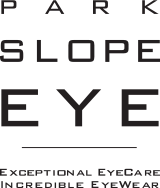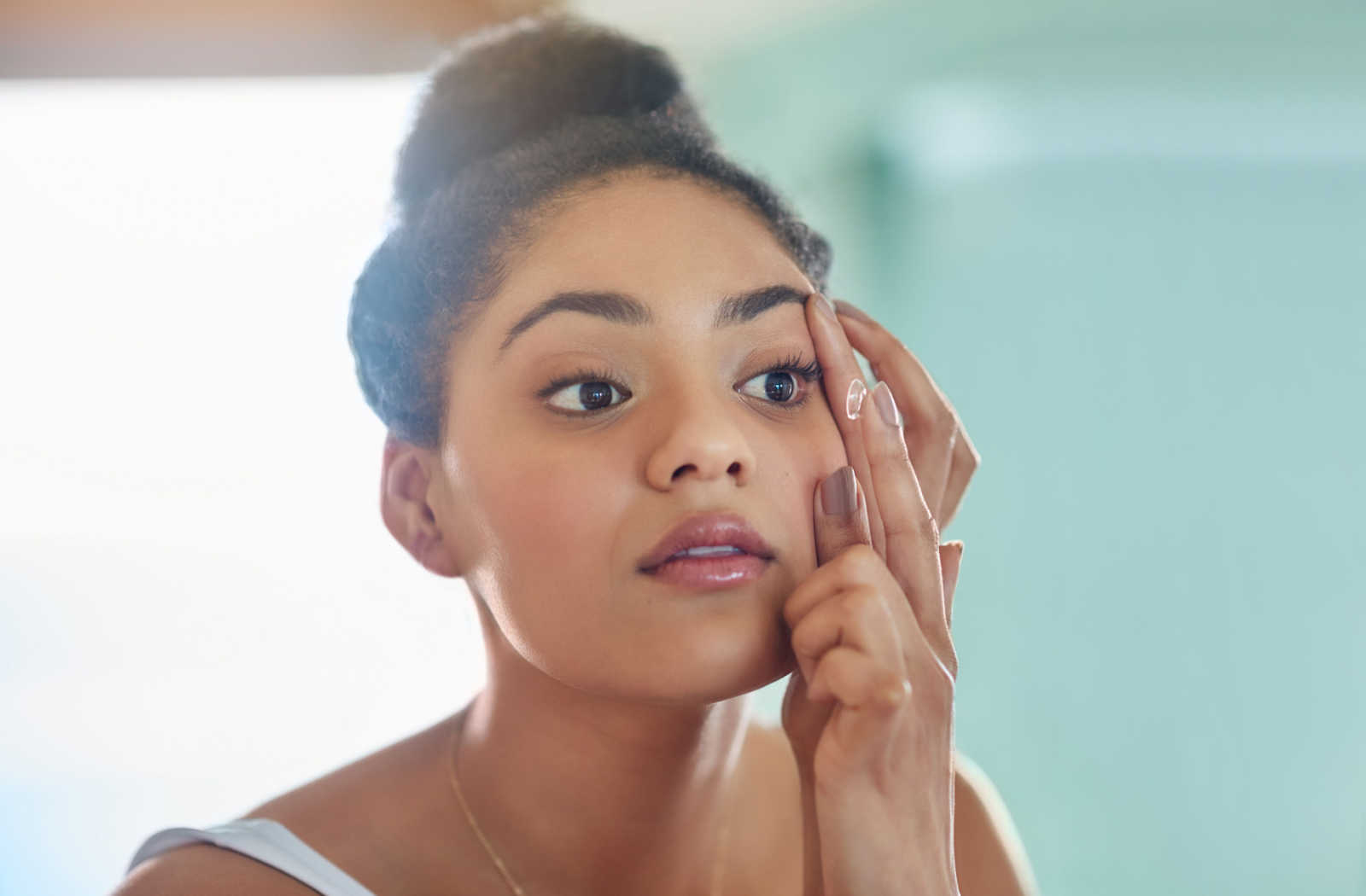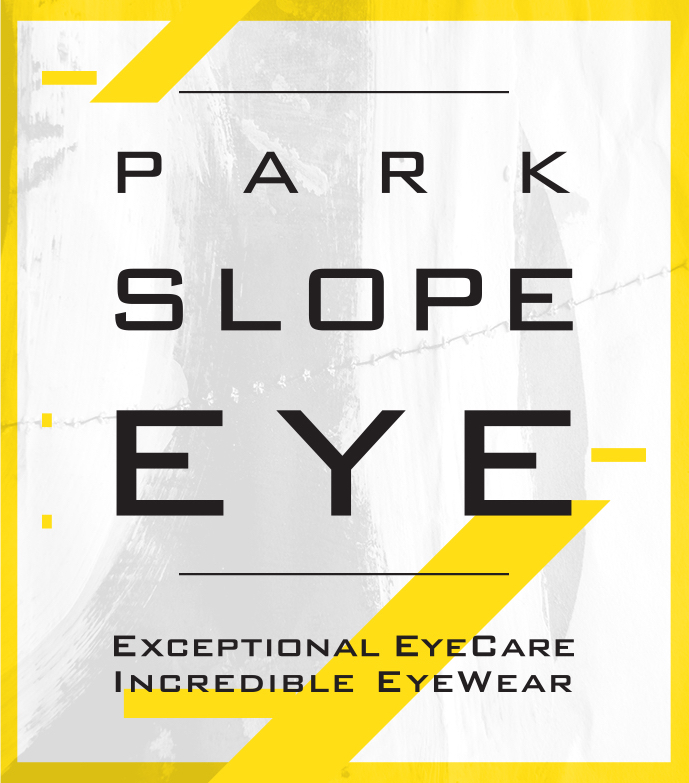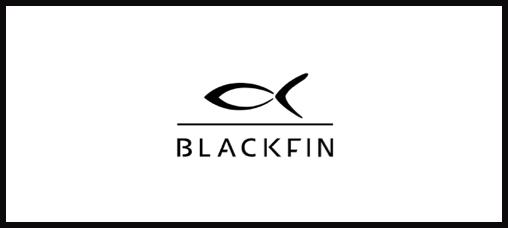Contact lenses are a popular choice for many people who don’t want to be held down by glasses. They can offer a wide range of benefits, including clearer vision, freedom of movement, and a more natural appearance. However, that doesn’t mean contacts don’t also have their drawbacks, especially for those who suffer from dry eyes or allergies.
Contact lenses can be uncomfortable if you are already experiencing eye irritation caused by dry eye or allergies. However, with advances in contact lens technology, there are contact options that can be suitable for dry eye and allergy sufferers alike.
Generally speaking, a breathable contact lens with high water content can be a great option for people with dry eyes and allergies. Daily disposable contacts can be a particularly good option because you start with a fresh lens every day.
Ultimately, eye doctors can be your best resource in finding contacts that work for your specific vision and eye care needs. Not all contact lenses are created equal, and it is important to find what works best for you to achieve clear vision without compromising on comfort.
Types of Contact Lenses for Dry Eye and Allergy Sufferers
With so many different contact lens options available on the market, it’s understandable that you might feel overwhelmed. You want to choose the best option for your individual needs, and if you experience dry eyes or allergies, that may make that choice even more difficult.
It’s important to remember that contact lenses are a medical device that sits directly on a pretty important organ (a.k.a. your eyes) and should therefore only be worn with a prescription from your eye doctor.
Daily Disposable Contact Lenses for Dry Eyes
Daily disposables can be a great option for many people, but especially for those of us with dry eyes or allergies. This type of contact lens is designed to be worn once and then discarded. This means that there are fewer opportunities for allergens to build up on your lenses, reducing the risk of an allergic reaction.
Many daily disposable lenses are made from breathable silicone hydrogel material that can help oxygen flow to your eyes, which can help reduce irritation from dry eyes. Daily disposables can easily be swapped out with a fresh pair of contacts or with a pair of glasses if you do start experiencing discomfort.
Scleral Lenses for Dry Eyes
Scleral lenses are large-diameter gas-permeable lenses that are often prescribed to accommodate corneal irregularities. Unlike traditional contact lenses that sit directly on your cornea, scleral lenses sit on the sclera—the white part of your eye—and vault over the cornea.
In addition to accommodating corneal conditions, including keratoconus, scleral lenses can be a good option for individuals with dry eyes or allergies. A scleral lens can provide a helpful barrier between your eye and potential allergens. Additionally, scleral lenses can create a reservoir of moisture to help keep your eyes hydrated throughout the day.
Scleral lenses may not be the perfect solution for everyone, so it’s best to speak with your eye doctor about whether they might be right for your needs.
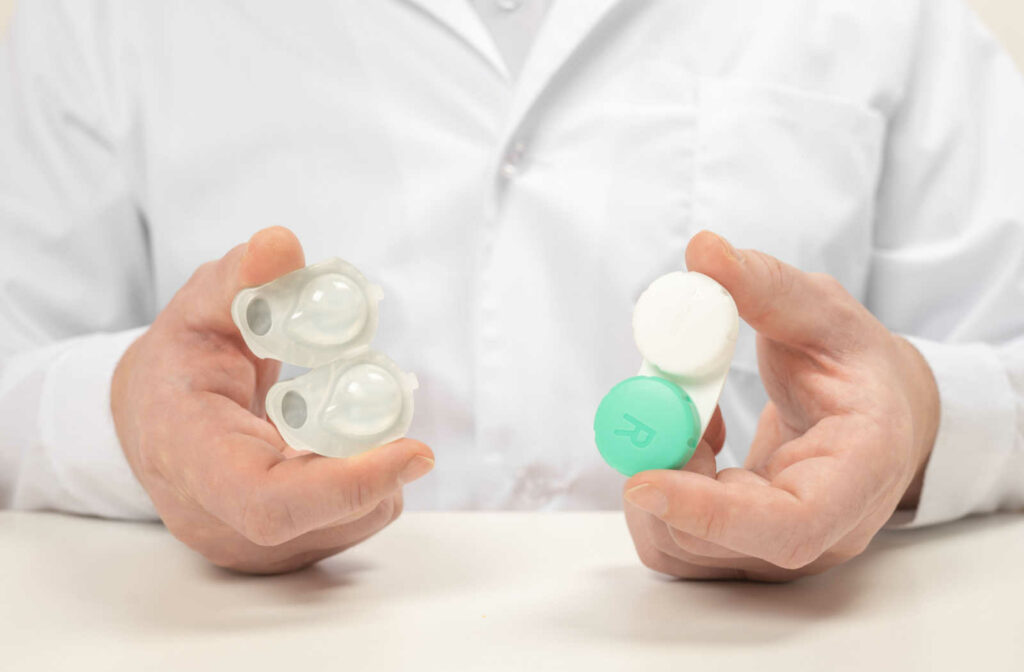
Tips for Wearing Contact Lenses
In addition to choosing the right type of contact lenses, there are steps you can take to help support the comfort of your contacts despite dry eyes or allergies:
- Avoid allergens: This might seem obvious, but one of the best ways to avoid eye irritation caused by allergies is to avoid allergens. This may mean staying indoors during peak allergy season, using an air purifier, and avoiding pets or other triggers that cause your allergies to flare up. It’s also important to keep in mind that while antihistamines can provide temporary relief from allergies, they can also contribute to dry eyes.
- Follow good contact lens hygiene: Proper contact lens hygiene is essential for keeping your eyes healthy and happy, especially if you suffer from dry eyes or allergies. Make sure to wash your hands before handling your lenses, and clean your lenses regularly with the appropriate solution (or dispose of your lenses immediately after wear if they are daily disposables).
- Use eye drops: Eye drops can be a great tool for combating inflammation and providing your eyes with hydration. The drops that can help your eyes may depend on what type of eye condition you’re experiencing and your other needs for vision support, so it’s important to speak with your optometrist about the right drops for your eyes.
Find the Right Contact Lenses
Finding contact lenses can feel a bit like trying to hit a moving target—especially without the help of an eye doctor. Our experienced eye care professionals can help you find the right lenses to fit your unique vision and lifestyle needs.
The team at Park Slope Eye is here to guide you through the contact lens process and help you find the right fit for managing conditions like dry eyes and allergies. Book your appointment to visit us for a contact lens exam today!
